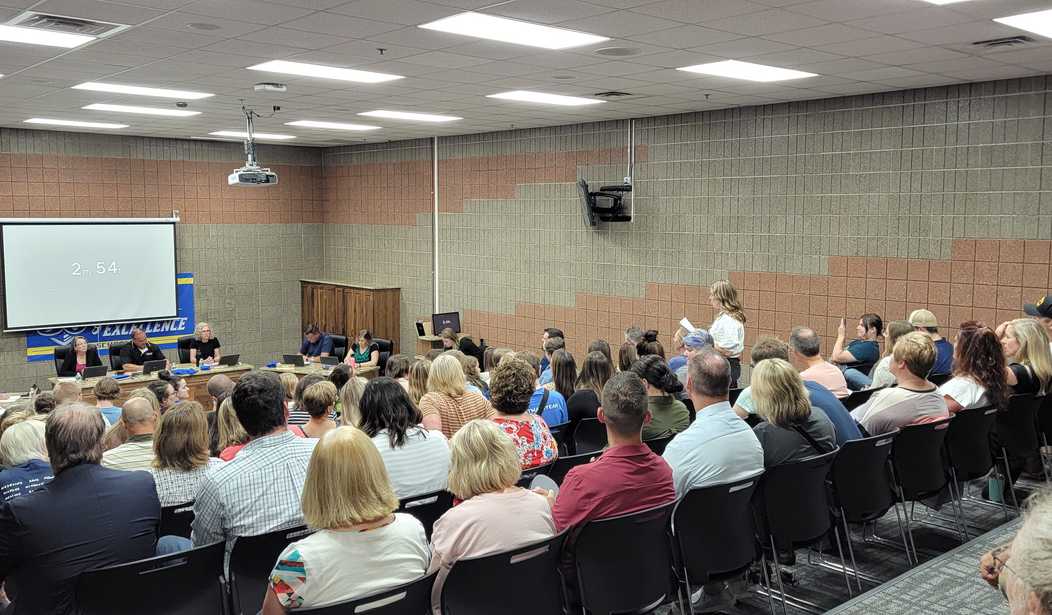It was in Virginia in 2021 that the issue of how America's children are being educated broke through to become more than just a local issue. Democrats had their way with school board elections for a generation, and when some of what liberal school boards were approving for classroom instruction became widely known, many parents were incensed.
"None of your business," Democratic candidate for governor Terry McAuliffe seemed to tell Virginia parents when asked during a debate about sexually explicit books in the classroom.
'I'm not going to let parents come into schools and actually take books out and make their own decision" he said. "I don't think parents should be telling schools what they should teach."
Wrong answer.
What happened next was a historic example of democracy in action. Parents on both sides of the issue across the country organized, put up candidates and referendums, and got out the vote at election time.
The reaction by incumbent school board members was astonishment and, in many ways, matched McAuliffe's arrogant dismissals. They tried turning off microphones, using local police to kick dissenters out of meetings, and, when all else failed, canceling open meetings or not allowing an audience.
That was almost three years ago. Since then, the conservative tide has ebbed somewhat as Democrats have fought back. Now the issue of how children should be educated is influencing other races, making education a powerful issue heading into 2024.
Many states are holding elections for school boards on Tuesday.
Roughly 30,000 board seats are estimated to be up for election in 2023, including races earlier this year that saw mixed results for conservative candidates in Wisconsin, Illinois and other states.
Yet board elections from the Philadelphia and Pittsburgh suburbs to smaller central Pennsylvania communities will further test the potency of conservative school politics ahead of the 2024 presidential election. Look to Bucks County, one of the swingiest counties in one of America’s swingiest states, for ample examples.
Conservative board members won a 6-3 majority in the Central Bucks School District outside Philadelphia in 2021. Passionate fights over library book restrictions, curriculum and student gender identity have not seemed to stop at the state’s third-largest school system since.
Another big issue, of course, is how schools should teach the subjects of slavery and civil rights. Many liberal school boards have ditched the term "critical race theory" but teach it anyway under a different name.
But it's sex and gender that elicit the most passion. Library books, sex ed, and, especially, anything having to do with transgender issues have caused heated debates in these campaigns. Some school board races are more expensive than races for the state legislature.
“These issues that were national issues, like critical race theory and book bans, now are being brought to the local level because people are watching their selected news channels and becoming entrenched in a certain position,” said Bart Rocco, executive director of the Tri-State Area School Study Council at the University of Pittsburgh. “It’s created a dichotomy, and we need to look at how much is too much and a detriment to the system.”
Indeed, school boards were largely made up of parents who had kids attending a school in the district. But the worry is that as the races become more politically sophisticated, school boards will become too partisan and the interest in educating children will take a backseat to board members promoting pet issues.
It’s a microcosm of what’s happened around the country in recent years as a growing faction on the right has targeted public education, arguing parents should have more control over what their children learn and experience at school.
Their fight to remove classroom materials they view as upsetting to children, dump equity programs and reject accommodations for transgender students has sparked a fierce backlash from parents who say supporting public education means ensuring children with different backgrounds and needs have ample opportunity to thrive.
In communities where political differences used to be sorted out with civilized compromise, public meetings devolve into screaming matches. Legal complaints fly. Deputies kick people out. School board members refuse to cede any ground. Neither side can bear giving up what each thinks is best for kids.
"The lower rungs of democracy are cracking," AP gravely states. That's a bunch of baloney. After decades of ignoring parents' concerns, school boards are being forced to deal with them.
Related: What Is Going On in Kentucky?
What's "cracking" is the left-wing monopoly on school board control. And that's how democracy is supposed to work.










Join the conversation as a VIP Member